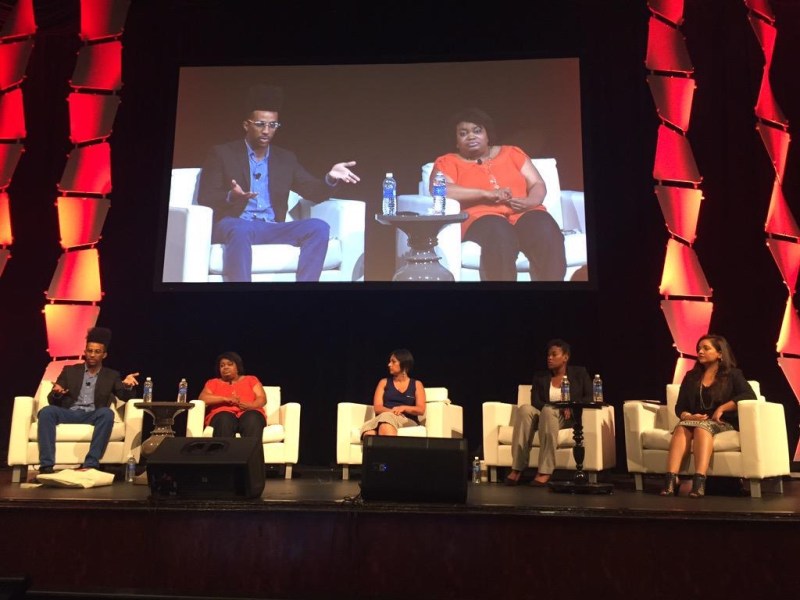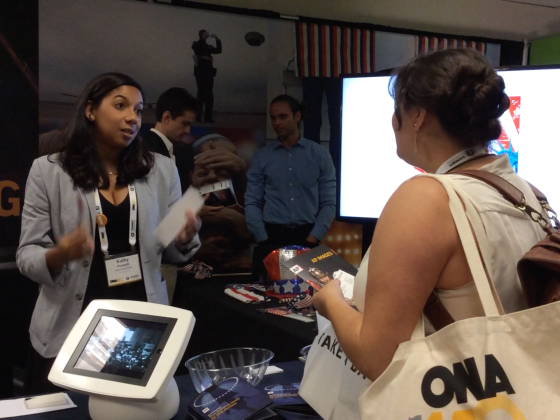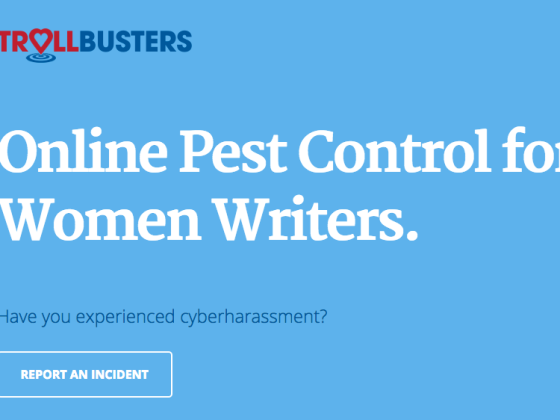
By Kenneth Ware Jr.
ONA Newsroom
Has Twitter trended to become the voice of a generation? A panel of activists, educators, journalists and researchers say yes. That voice in the African American community, dubbed “Black Twitter,” has become a go-to source for news and information in the black community, a community whose vital interests are often ignored by mainstream news outlets, according to the panelists.
“Black Twitter is a culturally linked network of communicators who are interested in issues of concern to Black communities,” said Meredith Clark, an assistant professor at the University of North Texas. On Thursday panelists at #ONA15 discussed Twitter’s impact on American culture in a session titled “Black Twitter and Beyond.” #ONABeyond.
Essentially, you can see/hear the Black people who otherwise go ignored in every day life. #ONABeyond #ONA15. #BlackTwitter
— Meredith Clark, PhD (@meredithclark) September 24, 2015
.@MeredithClark21 “We don’t have to come through your gate to get information to each other” #BlackTwitter #Tellem #ONA15 #ona15beyond
— Mercy A. Quaye (@Mercy_WriteNow) September 24, 2015
.@TMPowell says verticals about minorities are used to explain those groups to current US majority. #BlackTwitter @ONAConf #ona15 — Dr. Syb (@drsyb) September 24, 2015
Today, everyone has an alternate means of accessing information concerning their communities, said Tanzila Ahmed, co-host of #TheGoodMuslimBadMuslim podcast. “Most of the millennials are plugged in online,” she said. “We have to remember that blacks, Muslims, Latinos, etc., are not monoliths.”
Twitter conversations followed in hashtags such as #BlackLivesMatters have exploded into public consciousness. For example, Time magazine dedicated its April cover to the Black Lives Matter movement, founded by activists Alicia Garza, Patrisse Cullors and Opal Tometi, who wanted to spotlight the unequal treatment African Americans receive at the hands of police.
“I remember seeing the cover and thinking to myself, ‘Wow. Black Twitter is really making a cultural impact,” said Jasmine Morales, a multimedia journalist from Rochester, New York. If people of color are not engaging with MSM, how do we reach them? Or how do we change? #BlackTwitter #ONA15 pic.twitter.com/KD1wbvl1gN
That sentiment is backed up by the Pew Research Center, which reported 100 million users are contributing to Twitter, forcing stories into the mainstream news flow. Black people tend to use Twitter more often. The report noted that 22 percent of black Internet users access Twitter at high levels compared with 16 percent of whites. In addition, Black people form tighter clusters on the network and follow one another more readily, according to the report.
“Social media is going to be that litigating factor that gets mainstream media to look beyond what they think is news and focus on what the community knows is news,” Clark said. “News organizations may be ignoring it on the interaction level, but they are being forced to pay attention to it when stories are developing,” said Dexter Thomas, who covers Black Twitter for the LA Times. For example, users blew up Twitter when Michael Brown, an 18-year-old African-American man, was fatally shot by a white police officer last August in Ferguson, Mo.
“I was in Tokyo when that happened,” Thomas said. “I could talk to my Japanese friends about that, but the context just wasn’t there. That’s when I realized this was a lifeline for me. The social justice angle was crucial for me at that time.”
Ahmed agreed. “Social media is igniting the conversation and holding mainstream media accountable,” she said.
But there is more than social outrage fueling tweets. “You have entertaining hashtags like #200DollarDate, #Scandal, and any of the Love and Hip Hop shows,” Clark said. “You can run the gamut, there are a number of different hashtags you can check out and see Black Twitter.” “I think more roles that directly work with culture and minority people need to be there,” Thomas said. “You would be a fool to ignore Black Twitter.”
What I learned: #BlackTwitter is community, not just social phenom. When media stops paying attn, we’ll still be here. #ONABeyond #ONA15 — Meredith Clark, PhD (@meredithclark) September 24, 2015







You must be logged in to post a comment.